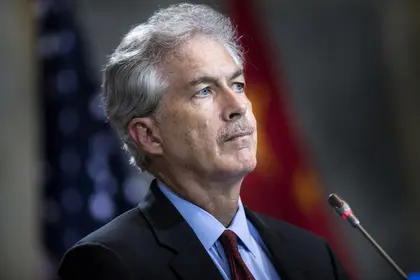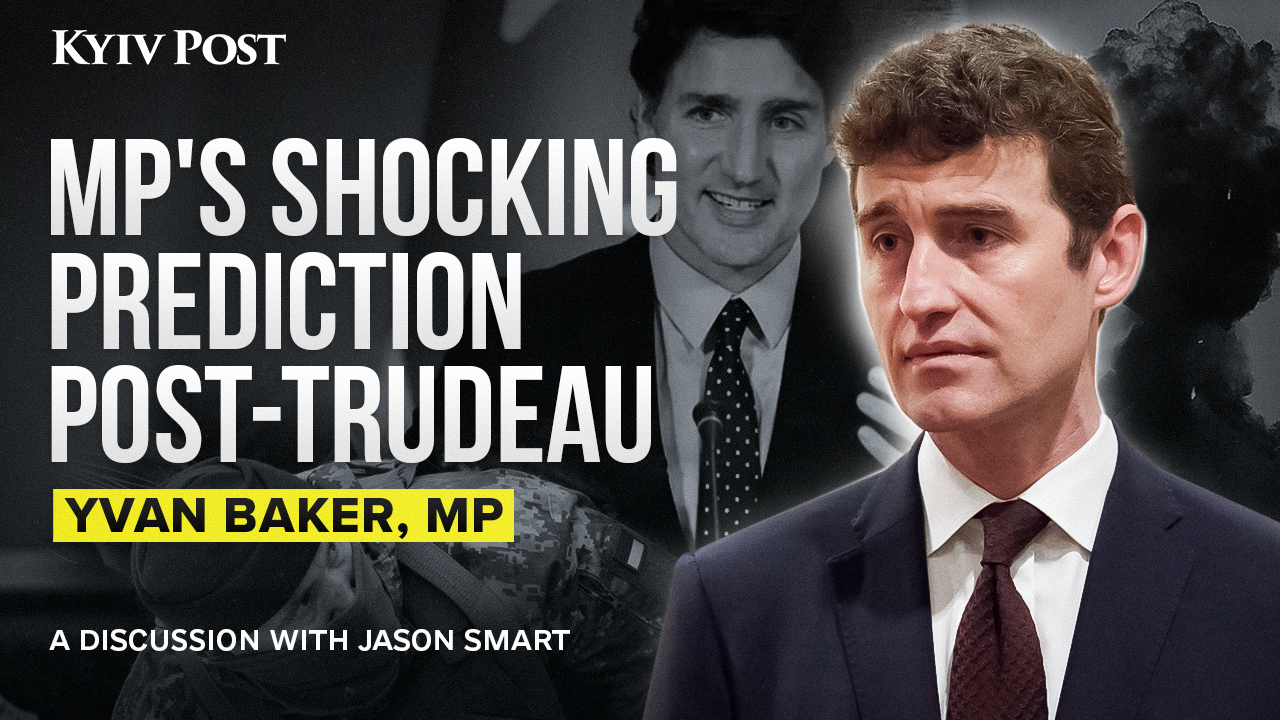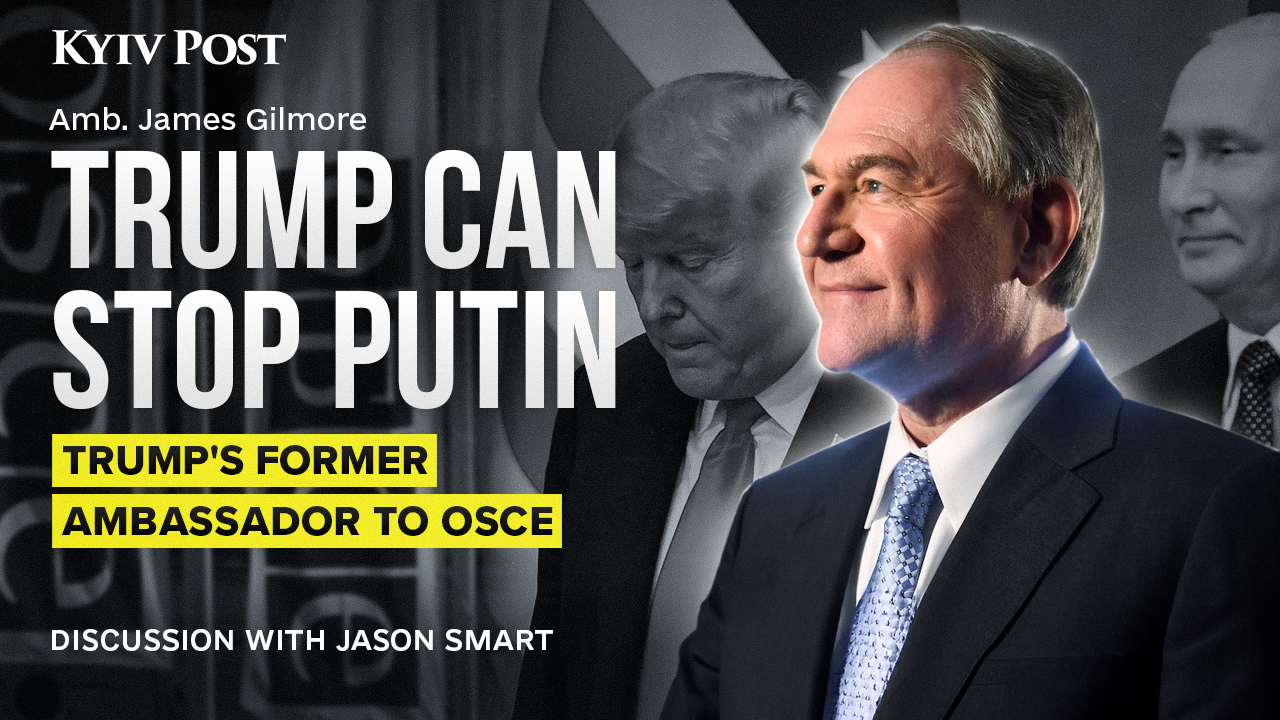Williams J. Burns is widely considered the most skillful US diplomat of his generation. He boasts a golden career, including ambassadorship to Moscow 2005-8, Undersecretary of State for Policy, and Deputy Secretary of State. He has served in top positions under both democrats and republicans.
Today, Burns is head of the CIA and US President Joe Biden just made him a member of his cabinet. He is often seen as Biden’s most important advisor on Russia’s war in Ukraine after national security advisor Jake Sullivan.
- Read the most current Ukraine news stories for today.
- Examine the most contemporary Ukraine news that came out today.
JOIN US ON TELEGRAM
Follow our coverage of the war on the @Kyivpost_official.
In 2019, Burns published his highly acclaimed memoir, The Back Channel: American Diplomacy in a Disordered World. Given his current prominence, I have just finished reading it to try to figure out where he actually stands on Russia and Ukraine.
Much of the US establishment, not to mention Germany and France, got Putin and his foreign policy wrong
The book is substantial. Burns spells out his views in uncommon clarity thanks to ample access to his old reports to the State Department. But the more I read, the more disappointed I became by his view of Russia and Ukraine, but the problem was not only Burns.
Much of the US establishment, not to mention Germany and France, got Putin and his foreign policy wrong. They neglected the interests of friendly countries such as Ukraine and Georgia..
Russian President Vladimir Putin has actually been remarkably transparent, and Burns reports it well. When Secretary of State Condoleezza Rice visited Putin in Moscow in 2005, he stated: “Saakashvili is nothing more than a puppet of the United States.” He continued: “If Georgia causes bloodshed in Ossetia, I will have no alternative to recognizing South Ossetia and Abkhazia, and responding with force” (p. 202).

FACT CHECK: How Much of What Trump Said Last Week About War in Ukraine is True?
Already then, Putin threatened to attack Georgia. One would have expected the US to respond forcefully and prepare measures against Russian expansionism (sharp statements, threats of sanctions, arms deliveries). Yet, Burns simply states: “Putin’s pugnacity left an impression.”
Burns expresses contempt for former Russian President Boris Yeltsin, who launched Russia’s freedom and economic reforms, while he is respectful of Putin: “He seemed in many ways the anti-Yeltsin – half a generation younger, sober, ruthlessly competent, hardworking, and hard-faced, he offered promise for Russians tired of the Yeltsin-era chaos and disorder” (p. 206).
Burns continues: “Putin made a brutal object lesson of the billionaire Mikhail Khodorkovsky in 2003, seizing his oil and gas company, Yukos, and sending him to prison.” Putin’s absence of good values is mentioned just in passing where Burns states that he “has never been a democratizer” (p. 207). Burns rightly notices that by 2005, the Bush administration “saw a Russia uninterested in democratic values” (p. 209).
Burns evidently expressed no interest in any democratic agenda: “I urged realism about the unlikely prospects for broad partnership with Putin’s Russia, and pragmatism in our strategy… Pragmatism required that we draw clear lines around our vital interests, pick our fights on other issues carefully” (p. 210).
Burns’ main concern was that the US would provoke Putin, and he found great understanding in George W. Bush, Condoleezza Rice, and Robert Gates.
Warning signs
As Burns reported from Putin’s meeting with Rice, the warning signs of Putin’s new aggressive foreign policy were abundant already in 2005. Putin just escalated. In his speech at the Munich Security Conference in February 2007, Burns states how Putin “bitterly criticized American unilateralism” (p. 224).
Instead of taking Putin’s new aggression seriously, Burns acts like a psychotherapist, seeing his speech as “the self-absorbed product of 15 years of accumulate Russian frustrations and grievances…Putin was giving voice to the pent-up frustrations of many Russians” (p. 224). Well, so did Adolf Hitler in Weimar, Germany, and we knew how that ended. No such thought could be further from Burns’ mind. He wanted to accommodate Putin.
One of the most interesting parts of his memoir is his analysis of the US policy options in early 2008:
“We face three potential trainwrecks: Kosovo, [NATO membership action plans] for Ukraine/Georgia, and missile defense. We’ve got a high-priority problem with Iran that will be extremely hard…to address without the Russians. We’ve got a chance to do something enduring with the Russians on nuclear cooperation…and we’ve got an opportunity to get off on a better foot with a reconfigured Russian leadership after [Dmitry] Medvedev’s likely election, and to help the Russians get across the finish line into [the World Trade Organization (WTO)] this year…. I’d opt for plowing ahead resolutely on Kosovo; deferring membership action plans for Ukraine or Georgia until a stronger foundation is laid…” (p. 232).
Burns was adamantly against offering Ukraine and Georgia NATO membership action plans
This was an accurate reflection of the US realist thinking at that time, but in hindsight it seems absurd. Today we know that the top issue was the security of Ukraine and Georgia. None of the other issues were really important. The recognition of Kosovo did not solve any problem. The missile defense issue has become pretty irrelevant. Nuclear cooperation with Russia has ended, and a new military alliance between Russia, Iran and North Korea has emerged. Medvedev was of limited significance and then turned a hardliner. Russia’s accession to the WTO (which I supported) has had no impact.
Burns was adamantly against offering Ukraine and Georgia NATO membership action plans, which he blamed on “neoconservatives”: “Ukrainian entry into NATO is the brightest of all red lines for the Russian elite… Today’s Russia will respond. Russian-Ukrainian relations will go into a deep freeze… It will create fertile soil for Russian meddling in Crimea and eastern Ukraine… The prospects for subsequent Russian-Georgian armed conflict would be high.” (p. 233).
While Burns understood well how Putin’s Kremlin would react, he effectively argued the US should allow Putin to set the US policy agenda. His stand was not based on any sympathy for Putin’s Russia. On the contrary, he noted “that Russia is a deeply authoritarian and overcentralized state today” (p. 233). But besides a brief mentioning of rising corruption (p. 226), Burns refrains from complaining about organized crime and kleptocracy being the essence of Putin’s system. Why?
Placating a war monger
Burns reports that Putin told him in early 2008: “Don’t you know that Ukraine is not even a real country?” which Putin has repeated incessantly since then. Rather than drawing the obvious conclusion that Putin did not recognize the rights of Ukraine and Georgia to be independent countries, Burns and the Bush administration tried to accommodate Putin, as if the problem was not that he was a neo-imperialist war monger but only in a bad mood.
Similarly, Burns did not call for US support for the reasonably democratic and Western-oriented countries Georgia and Ukraine, but he reports from August 2008: “Putin was determined to take Saakashvili down a peg, and perhaps also show in the wake of the Bucharest [NATO summit] statement, that the Germans and French were right to see Georgia’s not-so-frozen conflicts as a long-term obstacle to NATO membership” (p. 241).
The Burns memoirs are a valuable testimony to the folly of US policy on Russia and Ukraine in the last two decades
Well, who was responsible for these so-called “frozen” conflicts? Russia’s military aggression! While Burns is wisely cautious, he does appear to put much of the blame on the war in Georgia on Saakashvili and the US.
In spite of Russia’s aggression against Georgia, the US did not impose any sanctions on Russia, and US President Barack Obama started his reset as if nothing had happened. So Putin understood that he could go ahead and attack Ukraine in 2014. Since the Obama administration in 2014 imposed only limited sanctions and – incredibly – refused to deliver lethal weapons to Ukraine so that it could defend itself, Putin expressed his appreciation and launched a full-scale invasion of Ukraine in February 2022.
Lessons learned?
The Burns memoirs are a valuable testimony to the folly of US policy on Russia and Ukraine in the last two decades. First of all, the US got Putin wrong. After Putin declared his full animosity to the US and the West in his February 2007 Munich speech, the US Embassy in Moscow should have focused on predicting what wars Russia might be planning. Second, US policy should have planned what the US should do in response. Substantial arms deliveries to Ukraine should have been the very least.
Needless to say, Burns was not responsible for these mistakes. He served his rulers eminently. The main responsibility rests ultimately with then US Presidents George W. Bush and Obama, who did not fathom Putin’s intentions. Bush tried to accommodate Putin with too much friendliness and with too many meetings, while Obama sensibly ignored Putin, but did not stand up to him. France and Germany were far worse on all accounts, but that is another story.
The Biden administration clearly understands far more and has done a great deal. Without its understanding and efforts, Ukraine might have fallen, but the final steps that need to be taken are to declare that Ukraine must win this war and the West, primarily the US, needs to deliver all the arms it takes for Ukraine to defeat Russia.
Anders Åslund is the author of “Russia’s Crony Capitalism: The Path from Market Economy to Kleptocracy.”
The views expressed are the author’s and not necessarily of Kyiv Post.
You can also highlight the text and press Ctrl + Enter








